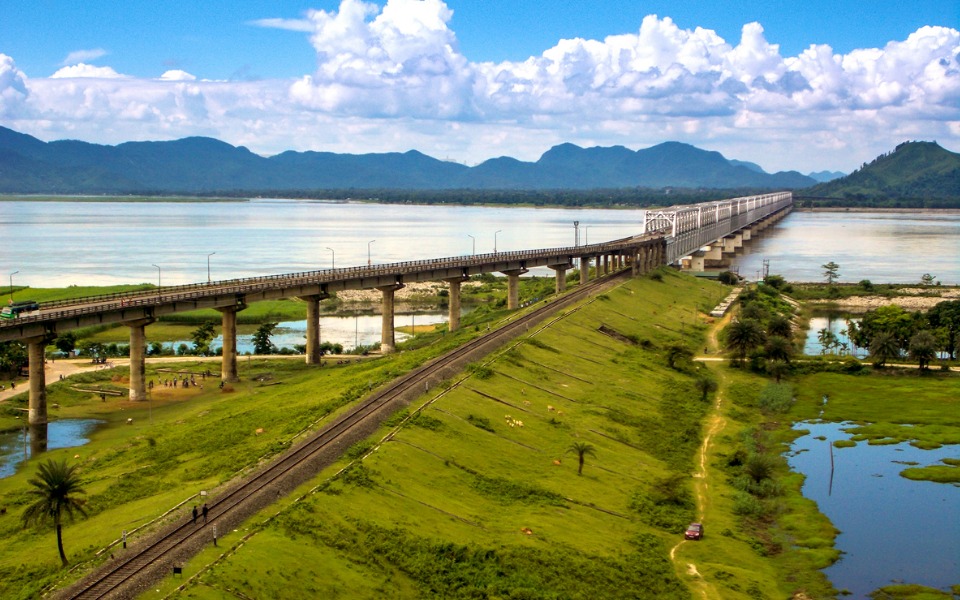
Centre’s proposed eco clearance rules jeopardize NE’s fragile ecology
A new set of rules that the Union government proposed to introduce to administer the country’s environment clearance regime raised renewed ecological concerns in India’s northeast and other tribal areas that have the country's 60 percent forest cover.

A new set of rules that the Union government proposed to introduce to administer the country’s environment clearance regime raised renewed ecological concerns in India’s Northeast and other tribal areas, that have 60 percent of the country’s forest cover.
Experts are of the view that once the rules, proposed in the draft Environment Impact Assessment (EIA) notification 2020, are implemented, many projects stuck in India’s Northeast and other tribal areas due to ecological concerns will get easy clearance, undermining environmental impact.
On March 23, just a day before the country went into lockdown to prevent the spread of COVID-19, the government released the draft notification to replace the EIA notification 2006.
Following the release, the Ministry of Environment, Forest and Climate change (MoEFCC) had set a June-30 deadline for stakeholders to put forth their objections and views. The Delhi High Court on Monday (June 29), however, extended the time period for filing objections till August 11.
Legal experts and tribal rights activists say the notification seeks to alter 12 out of 14 clauses of the 2006 executive order and several statutory provisions emphasizing on “ease of doing business”, particularly with regard to infrastructure projects and exploration of natural resources.
Related news: Covid-19: Govt panel wants auto-extension of forest clearance for mines
Director of the New Delhi-based Rights and Risks Analysis Group (RRAG) Suhas Chakma said the draft EIA would legitimise violation of environment protection laws, dilute public consultation process, and provide discretionary powers to authorities to clear any project labelling them as “of national interest.”
The Indigenous Lawyers Association of India, which is a network of tribal lawyers, also took serious exception to the contents of the draft notification, pointing out that Northeast and other tribal areas of the country would naturally be the most affected if this executive order comes into force.
The association, established earlier this year to uphold existing legal rights of the indigenous communities, dubbed the draft notification an instrument to “grab tribal lands and forests.”
In a letter addressed to the Environment Ministry on June 30, it demanded immediate withdrawal of the “unconstitutional draft”. It said if the draft was not withdrawn or changed to comply with constitutional propriety, then it would be subject to challenge before the Supreme Court as “allowing an executive order to override, amend or alter statutory provisions amounts to inviting anarchy in the country.”
The draft exempts a long list of projects from environmental clearance under “security” or “strategic considerations”. But it does not define what constitutes “security” or “strategic considerations”.
Related news: Govt amends mining law, exempts small-scale activities from green clearance
Among others, it also seeks to override the powers of the Gram Sabha guaranteed under the Panchayats (Extension to the Scheduled Areas) Act 1996, and the Scheduled Tribes and Other Traditional Forest Dwellers Act 2006 to grant approval or consent to any project in tribal/forest areas.
Those who have analysed the draft said it would help the government to push through any project under the garb of “security” or “strategic considerations” overlooking environmental or land related issues.
For instance, the 3097-MW Dibang Valley Hydropower project in Arunachal Pradesh is embroiled in environmental controversy as it will require felling of over 2.7 lakh trees, and will pose a serious threat to Dibang Wildlife Sanctuary, a tiger habitat.
The project will also submerge 4,009 hectares of land and push back water of Dibang river by 43 km upstream. About 43 villages of Idu-Mishmi tribe will be directly affected by the project’s dam – the largest in India and the world’s tallest concrete gravity dam with a height of 288 metres.
Besides, oil and natural gas exploration works in several blocks owned by companies, including that of Oil India and Anil Agarwal-led Vedanta, are stuck over forest and wildlife clearance issues.
“Works can be resumed in these projects without complying with environmental norms if the new notification becomes rules,” said Dilip Kanti Chakma, president of the ILAI.
The new rules would also provide lots of leeway to circumvent land rights of tribals and environment protection laws while undertaking commercial mining of 41 coal blocks the government recently opened for private players, Chakma said.

